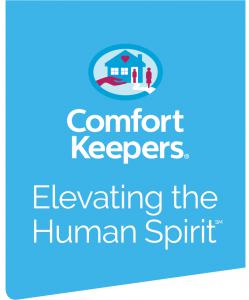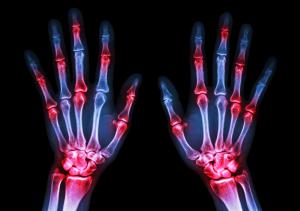Senior Arthritis: Living At Home With The Chronic Condition

Stephanie Howe
Living at home with arthritis can be challenging for seniors. Useful information about the chronic disease and tips for providing care to seniors at home.
ROBBINSVILLE, NEW JERSEY, UNITED STATES, November 1, 2019 /EINPresswire.com/ -- Arthritis affects one out of four Americans in the United States, and seniors (older adults) represent the majority of those affected. Statistically, in New Jersey, roughly 20.5% of the population is affected by the disease, and again older adults represent the majority. To understand the various stages of living with arthritis in older adults, it is vital to discuss identifying, diagnosing, and managing the disease. Caregivers and in-home healthcare professionals should also be well-versed in managing the quality of life issues associated with the varying types of arthritis.
Types of Arthritis
There are over 100 different types of arthritis. The most common forms of this chronic condition are:
Osteoarthritis - known as degenerative joint disease or DJD, is by far the most common type of arthritis. DJD affects commonly affects fingers, hands, feet, and the spine, along with weight-bearing joints such as hips and knees. Osteoarthritis generally occurs with age, and the symptoms may come and go, but with severe cases, chronic pain can be continuous. Some of the symptoms of osteoarthritis or DJD are pain and stiffness in joints like the hands, knees, and hips, joints that are tender and warm, swelling, and a limited range of motion may also be exhibited. DJD treatment usually focuses on reducing pain and improving movement or range of motion. Medications for arthritis can include pain, relievers, and anti-inflammatories. Over-the-counter medicines like Acetaminophen, ibuprofen (Nonsteroidal anti-inflammatory drugs or NSAIDs) are regularly prescribed. Physicians generally prescribe prescription drugs like Corticosteroids, including Prednisone for pain management and reduction of inflammation. All medications and drugs can have side effects that should be noted and discussed with a physician. Physical therapy and occupational therapy are commonly prescribed.
Rheumatoid arthritis - known as RA it is a chronic inflammatory disorder causing inflammation of the joints and/or chronic pain. RA, an autoimmune disease, can affect more than just your joints or cause joint pain. Rheumatoid arthritis can damage or harm a wide variety of a person's bodily systems, like skin, eyes, lungs, heart, and blood vessels. RA is an autoimmune disorder that occurs when the immune system attacks its own body's tissues. Rheumatoid arthritis affects the lining of one's joints, which can cause swelling and pain, which can lead to bone erosion and/or deformities of joints. Rheumatoid arthritis is an arthritic condition that may also be a cause of disability. Over-the-counter drugs like those used in osteoarthritis and other treatment options like disease-modifying antirheumatic drugs (DMARDs) can also be prescribed to combat the effects of rheumatoid arthritis.
Diagnosis:
Medical professionals will usually perform a physical examination, review available genetic information and medical history, which are used to identify the type of arthritis that a person may have. Blood tests, X-rays, and other types of imaging may be necessary as well to identify the form of arthritis. The type and severity of arthritis will determine the ongoing arthritis treatment plan. Arthritis cannot be cured, but most forms of arthritis can be managed by limiting the impact it has on seniors.
Strategies for arthritis treatment:
A physician can develop and recommend pain management strategies, physical activity, or physical therapy as part of your arthritis treatment allowing seniors a better quality of life while staying in their homes.
Lifestyle changes: Seniors with arthritic conditions may need to limit or stop performing some activities, including hobbies. Seniors can be adaptive and resourceful, and with a little planning, they may still be able to do all the things that they enjoy. For example, some seniors may like to cook, but they cannot stand for long periods due to their arthritic condition and their chronic pain. Having a stool or chair available in the kitchen is useful and can be helpful, allowing your loved one the opportunity to rest and regroup while still performing a task that they love. Seniors with arthritic conditions have been known to use parts of the body not affected by arthritis to perform tasks like opening doors. Someone that is experiencing arthritis pain in their wrist could open the door using their shoulder or an elbow.
Movement: For some types of arthritis, sitting or working in one position for too long can cause the condition to worsen. Moving, walking, and stretching every 15 minutes can be helpful. For some, setting an alarm as a reminder to prompt movement can be beneficial.
Weight– Maintaining a healthy weight is helpful when managing arthritis. Excess weight causes additional strain on your joints and could worsen your condition. A medical professional or physician can recommend changes in diet or weight loss as a means of weight control to reduce joint strain. Before starting any weight control, weight loss or diet plan, or new physical activities, you or your loved one should consult with a medical professional.
Both education and awareness are critical components to understanding arthritis and any senior that may have been diagnosed or have arthritis should work with a healthcare professional to develop coping strategies.
Comfort Keepers®Can Help
A care plan minimizing the impact of arthritis on a senior or loved one can minimize the impact of the disease on their lives. Comfort Keepers can help and provide nurturing support to your loved one. Robbinsville Comfort Keepers remind clients to take medication, provide transportation to and from scheduled appointments while supporting physician-prescribed exercise and diets.
Your comfort keeper will assist in following care plans and will also help with day-to-day activities like cooking, cleaning, and physical care. Your comfort keeper works to make sure the senior loved one in your life finds joy and happiness each day, no matter their age or abilities. To learn more about our senior care services, contact your in-home care Robbinsville team from Comfort Keepers today.
This release was drafted by Results Driven Marketing, LLC: a full-service digital marketing, public relations, advertising, and content marketing firm located in Wynnewood, PA.
Stephanie Howe
Comfort Keepers Robinsville
+1 609-890-2888
email us here
Visit us on social media:
Facebook
Twitter
LinkedIn
Legal Disclaimer:
EIN Presswire provides this news content "as is" without warranty of any kind. We do not accept any responsibility or liability for the accuracy, content, images, videos, licenses, completeness, legality, or reliability of the information contained in this article. If you have any complaints or copyright issues related to this article, kindly contact the author above.


